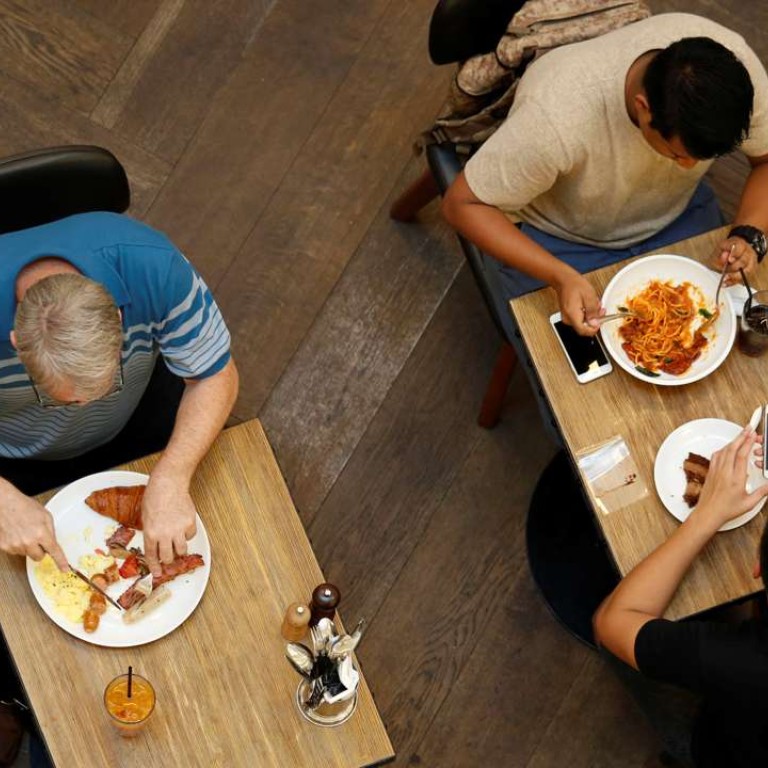
Let’s talk about sexuality, Hong Kong: young people need to know about sex and relationships
Andrew Chidgey says parents and teachers must recognise that a call for abstinence has its limits in the internet age, and leaving youth to ‘blunder through’ amid so much misinformation is dangerous
So many people in Hong Kong are afraid to talk to young people about sex. The truth is we should be more afraid of the consequences of not talking to them. It is rapidly apparent that the existing approach of trying to hide sex from young people is not only illogical in the internet age, it’s also dangerous. We meet young people every day who found themselves in situations they didn’t know how to handle, pressured into sex they didn’t want or having been infected with sexually transmitted diseases because they didn’t think they were at risk – those between 20 and 29 now make up the largest proportion of new HIV infection cases in Hong Kong.
Hong Kong’s sex education crisis: why people turn to sex workers for knowledge
Twenty to 30 years ago, when the current generation of parents was growing up, it was possible to hide sex more easily. The small number of TV channels came through one box in the living room. Teenage boys might sneak to a shop in another district to get a pornographic magazine. Now there’s no requirement for sneaking, everything is at the touch of a button, wherever or whenever you want it. On websites like Sex Secrets, Hong Kong youth tell stories about their sexual experiences. In reading those stories, we can see how unprepared young people are to navigate relationships and sex.
What this means is that, in the absence of good quality information, young people are getting their education about sexual relationships from a mixture of “blundering through” and internet pornography – which in many cases creates a set of wholly unrealistic expectations about what sex is or should be.
The things many Hongkongers don’t seem to understand about sex
Some parents console themselves by saying, “Oh, but my child wouldn’t have sex, that’s other people”, when the reality is that many do experiment. We see people from many walks of life coming for HIV testing every day.
A lot of Hong Kong’s sex education seems to be abstinence-based – don’t have sex. This is one approach and some young people will choose to wait. However, the mistake is to only teach abstinence and assume that people will follow it. Have you heard the story about the teenager who did as they were told? No, neither have I. We need to give people information that helps them to make choices.

Hong Kong parents who treat sex as taboo topic don’t help their children
International research shows that teaching abstinence makes no difference to the age at which people first have sex. In the absence of good information about risks and how to manage them, young people will take risks and make mistakes that cannot all be undone.
Often, parents panic when faced with questions about sex, coming up with strange euphemisms or diverting the conversation elsewhere. This reflects the fact that most parents don’t know how to talk about these issues. It’s right that judgments should be made about what needs to be known at what age. However, too many internet forums are littered with comments from parents saying, “Well, I never got told about this and I managed”.
Teachers and social workers say they are not confident to give this type of education. Most probably never received it themselves. In a system where many parents and schools are afraid, young people get told little or nothing.
Why is it OK for people to blunder through these experiences when a little discussion can help them find the right path? Making mistakes is part of life’s learning. But unwanted pregnancy or HIV should surely be avoided. Key questions young people can consider include: What am I looking for in a girlfriend or boyfriend? What is sex for? What are my boundaries? How do I communicate my wishes with someone? How do I say no?
Secret screening of ‘erotic’ film in Sai Kung to support NGO calling for changes to Hong Kong sex education
Andrew Chidgey is chief executive of AIDS Concern

